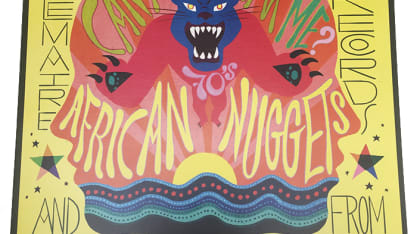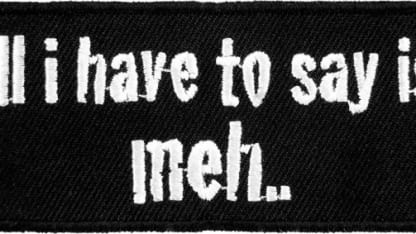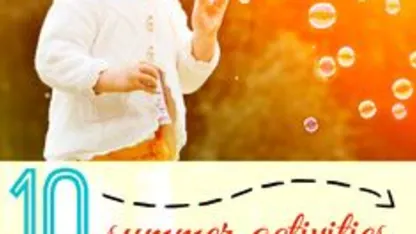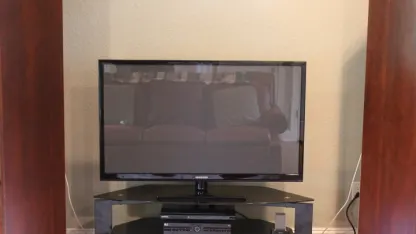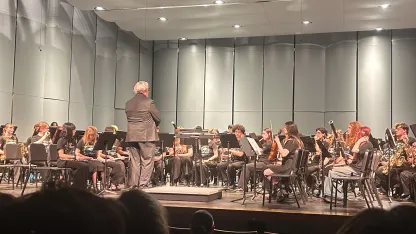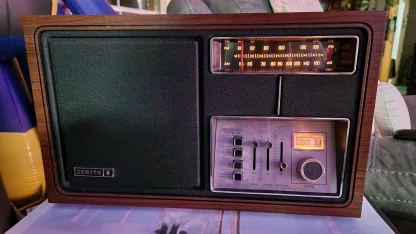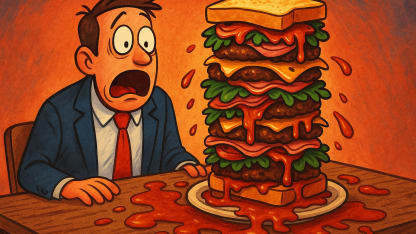Boom Swap Over-Ear Headphones





Our Take
- Tough plastic, big 40mm drivers, water resistant for the rugged among you- Swappable cups and color trim parts for the vain among you- The expert hand of Polk Audio lies behind these “Boom” folks- Model: SWGR-A (model number got swagger LOL)
Turn On Country Style: 10 Psychedelic Country Nuggets
Hey, Meh writer @JasonToon here. I used to dread seeing headphones coming up on the schedule. But now that I can just say “yeah, here’s some headphones, check the specs or whatever” and use it as an excuse to put together a cool weekend playlist, I’m hoping we sell more.Today, we’re spinning some psychedelic country. Psychedelic country? Indeed. If you think you hate all country music, maybe this will make you reconsider:https://d2b8wt72ktn9a2.cloudfront.net/mediocre/video/upload/v1736632117/40fac337c8b04edcaccf215f8721e734.mp4That’s Kenny Rogers and the First Edition in the 1968, doing the Mickey Newbury song “Just Dropped In (To See What Condition My Condition Was In)”. Big Lebowski fans will recognize it well. Such was the effect of the psychedelic revolution of the late '60s that even the country musicians singing about how they “don’t take their trips on LSD” were getting high to Bob Dylan on the tour bus. The artistic possibilities, on the one hand, and the commercial bankability of the new sounds, on the other, led some of those artists to explore bridging the apparently huge gulf between the two. I don’t know if one of the great country songwriters of the ‘60s, Tom T. Hall, had “Strawberry Fields” in mind when he wrote “Strawberry Farms” in 1969. But the hushed wistfulness and sun-woozy atmosphere of Hall’s song make it a great rural companion piece to the Beatles’ song:https://d2b8wt72ktn9a2.cloudfront.net/mediocre/video/upload/v1736632124/9fc9cec84b6971188a9a196b1c9c1451.mp4Some psych-country hybrids were more calculated for commercial crossover: just throw in a fuzz guitar, lyrics about social unrest, and the word “love”. Bobby Wright (son of country superstars Kitty Wells and Johnny Wright) follows the formula to a T on 1969’s “Sing a Song About Love”, but it’s no less fun for that:https://d2b8wt72ktn9a2.cloudfront.net/mediocre/video/upload/v1736632131/3a61737cd083ab493c7bd619e4a94beb.mp4Wright wasn’t the only one who felt like “Mankind’s folly is warping my mind.” Henson Cargill had a string of hits with benedictory warnings about the superficiality and hypocrisy of contemporary America. The best known is “Skip A Rope”, but the most psychedelic is 1970’s “Reprints (Plastic People)”:https://d2b8wt72ktn9a2.cloudfront.net/mediocre/video/upload/v1735929087/no_longer_available_qknaul.mp4The sounds mixed both ways. At the same time, pop and rock musicians were rediscovering country, a movement that would eventually lead to tepid ‘70s country-rock like the Eagles and Poco. But for a little while there, psychedelic attitude and country flavor made for some very interesting sounds. Mike Nesmith, the most musically inventive of the Monkees, brought it all together in songs like “St. Matthew”: In the mainstream, the freaky Texas hustler Lee Hazlewood is best known for writing and producing Nancy Sinatra’s "These Boots Are Made For Walkin’". But to his big underground cult following that sprung up in the ‘90s, he’s the closest thing to a psychedelic country godfather. Here’s his “Rose Colored Corner”, performed in 1968 by the otherwise unknown Lynn Castle with Last Friday’s Fire and released on Hazlewood’s LHI Industries label:https://d2b8wt72ktn9a2.cloudfront.net/mediocre/video/upload/v1736632148/eb87e19dc7e8d37b74f028dbc5fcc5d7.mp4One of Hazlewood’s least favorite LHI signings was the short-lived International Submarine Band, led by a Harvard University theology student named Gram Parsons. Before his legendary but brief solo career and early death, Parsons spent a brief sojourn with the Byrds. The resulting album, Sweetheart of the Rodeo (1968), was a commercial flop but the seminal country-rock and alt-country album. Parsons’s soaring “One Hundred Years from Now” combined the Byrds’ psychedelic harmony-rock with renowned guitarists Clarence White’s country picking and Lloyd Green’s pedal steel:https://d2b8wt72ktn9a2.cloudfront.net/mediocre/video/upload/v1736632160/8abf715ea16e612d5975de19b8bf9d2c.mp4Nashville’s established stars couldn’t afford to ignore the new sounds, either. This resulted in a lot of regrettable, inapt cover versions, but some good stuff, too. Johnny Cash and June Carter Cash sound right at home on their version of folkie Tim Hardin’s “If I Were A Carpenter”, released in 1970:https://d2b8wt72ktn9a2.cloudfront.net/mediocre/video/upload/v1736632168/1493e83bdb3575190f85029d969120e8.mp4So what happened to psychedelic country? Why have you never heard of it? Was it just a dead end, a passing fad, an embarrassing snapshot buried deep in the photo album of pop music? Not quite. Sturgill Simpson has become one of the hottest tickets on the club circuit with three albums now of “cosmic country”. 2014’s “Turtles All The Way Down” sounds like a Zen Waylon Jennings musing on “reptile aliens made of light [who] cut you open and pull out all your pain”:https://d2b8wt72ktn9a2.cloudfront.net/mediocre/video/upload/v1736632194/e36bccbe70aa466cc8606c660e34377a.mp4Guitarist/composer William Tyler works a nearby field with all-instrumental epics that combine down-home finger-picking with minimalist drones and Krautrock pulses. Here’s “Gone Clear” from his latest album, the humorously named Modern Country:https://d2b8wt72ktn9a2.cloudfront.net/mediocre/video/upload/v1736632236/152e8db83bd2bc5d1a2e7249ffc3c399.mp4It’s true that there was never a coherent movement or genre called “psychedelic country”, just a lot of disparate artists trying different things, for their own reasons. But psychedelic country’s short, unexamined life gives these songs a fresher sound than so much of the familiar pop music of the time. Listening to them, I get the feeling there’s still a lot of fascinating territory to explore in those wide-open spaces between Nashville and the center of the mind.


